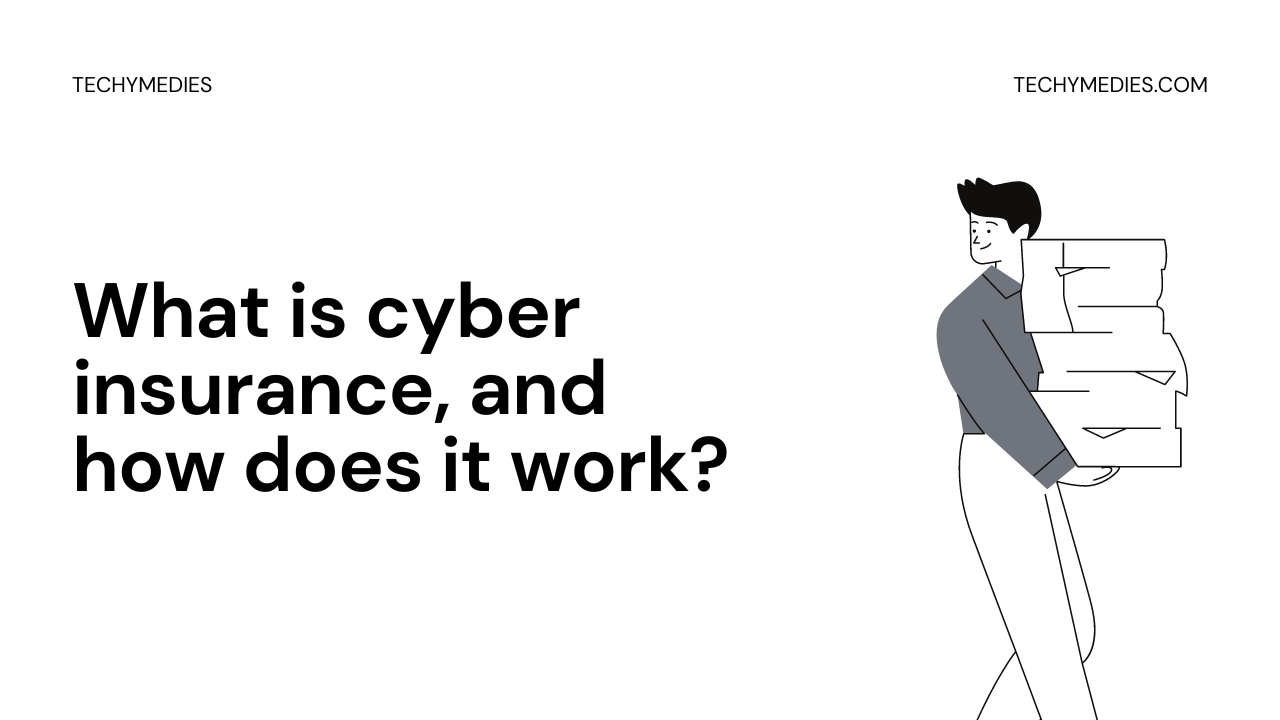Cyber insurance is a type of insurance that protects against losses resulting from cyber attacks, data breaches, and other digital threats. It is designed to cover the costs of responding to a cyber incident, such as legal fees, public relations expenses, and recovering and restoring data. Here’s what you all need to know about cyber insurance and How it Works.
There are several types of cyber insurance policies available, which offer varying levels of Coverage. Some policies cover the cost of notification and credit monitoring services for individuals whose personal information has been compromised. In contrast, others provide Coverage for business interruption losses from a cyber attack.
Why do we need Cyber Insurance?
- To protect against financial losses: Cyber insurance can help to cover these costs and protect against financial losses.
- To meet regulatory requirements: Cyber insurance can help organizations protect personal and confidential information requirements and avoid regulatory penalties.
- To protect against reputational damage: Cyber insurance can help to cover the costs of public relations efforts to restore an organization’s reputation following an incident.
- To reduce risk: Cyber insurance can help organizations to manage and reduce the risk of a cyber incident by providing access to resources such as risk assessment tools and incident response services.
How Cyber Insurance Works?
Cyber insurance works by protecting against losses resulting from cyber attacks, data breaches, and other digital threats. When a cyber incident occurs, the policyholder can file a claim with their insurance carrier.
Regarding the claim to seek Coverage for the costs associated with responding to the incident. These costs may include legal fees, public relations expenses, and recovering and restoring data.
Similarly, To determine the Coverage you need, you must conduct or get in touch with the cyber risk assessment. With them, you can get assistance to determine the appropriate coverage level and the policies that would benefit your organization.
On the other hand, When purchasing a cyber insurance policy, it is important to review the terms and conditions carefully to ensure that it meets your specific needs.
As Some policies may exclude certain cyber threats or limit the Coverage provided. It is also important to consider the reputation and financial stability of the insurer, as this can affect their ability to pay claims in the event of a cyber incident.
After these, It is important to report a cyber incident to your insurance carrier as soon as possible. This will allow your carrier to begin the claims process and help you to recover from the incident as quickly as possible.
Features of Cyber Insurance/ Benefits of Cyber Insurance
Depending on the specific policy and insurer, it may include several features of the cyber insurance policy. Some of the common advantages of cyber insurance include the following:
Data breach response: Coverage for the costs associated with responding to data breach including legal fees, public relations expenses, and the cost of notification and credit monitoring services for affected individuals.
Business interruption: Cyber Insurance covers the loss of income and other expenses resulting from a cyber attack or other digital threat interrupting the policyholder’s business operations.
Cyber extortion: Good Cyber Insurance costs of responding to a cyber extortion threat, such as ransom payments or legal fees.
Network security liability: With the Cyber Insurance Policy, you will get Coverage for third-party claims arising from a security breach of the policyholder’s network security.
Privacy liability: Coverage for third-party claims arising from the policyholder’s failure to protect personal or confidential information.
Network interruption: Coverage for the costs associated with restoring and recovering data following a cyber attack or other digital threat interrupting the policyholder’s network operations.
Coverage for Fraud and funds transfer: It covers the losses resulting from fraudulent Fund transfers or other financial crimes facilitated by a cyber attack or digital threat.
Cybercrime coverage: Coverage for losses resulting from cyber crimes such as identity theft or unauthorized access to data.
FAQ
What is not covered by Cyber insurance?
Losses resulting from employee negligence or intentional acts and Losses resulting from war or terrorism are not covered by Cyber Insurance.
What type of control is Cyber insurance?
Cyber insurance is a type of risk management tool. It helps protect against the financial and reputational consequences of a cyber attack or data breach, and it’s not a Control.
What is the 3 importance of cyber Security?
Cybersecurity is important for protecting sensitive data, maintaining system availability, and ensuring compliance with regulatory requirements.
What are the requirements for cyber insurance?
The requirements for cyber insurance are to demonstrate that they have implemented appropriate cybersecurity measures to protect against cyber-attacks and other digital threats.
What are the components of a cyber insurance policy?
Coverage Limits, Exclusions, Deductibles, Policy Limits, etc., are the key components of a Cyber Insurance Policy.
